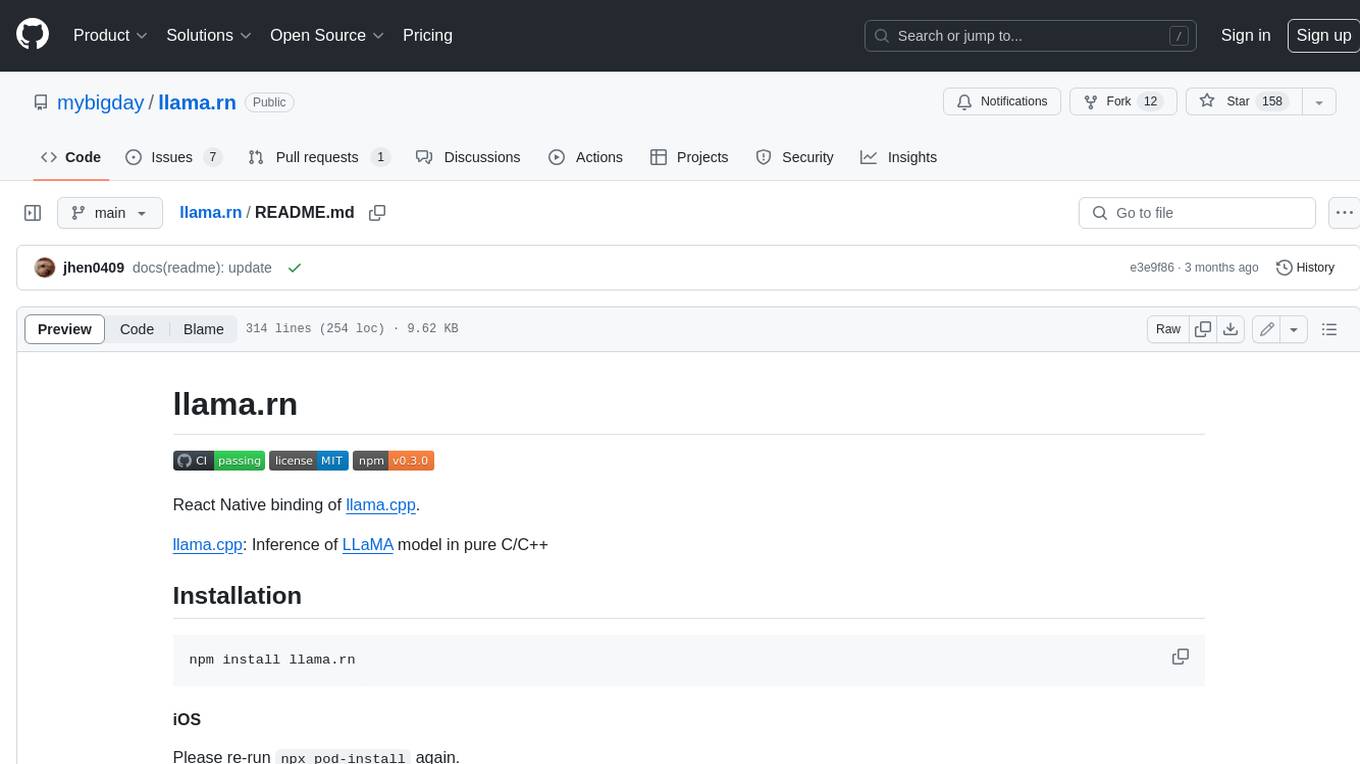Best AI tools for< Detokenization >
0 - AI tool Sites
No tools available
1 - Open Source AI Tools

llama.rn
React Native binding of llama.cpp, which is an inference of LLaMA model in pure C/C++. This tool allows you to use the LLaMA model in your React Native applications for various tasks such as text completion, tokenization, detokenization, and embedding. It provides a convenient interface to interact with the LLaMA model and supports features like grammar sampling and mocking for testing purposes.
github
: 671
0 - OpenAI Gpts
No tools available